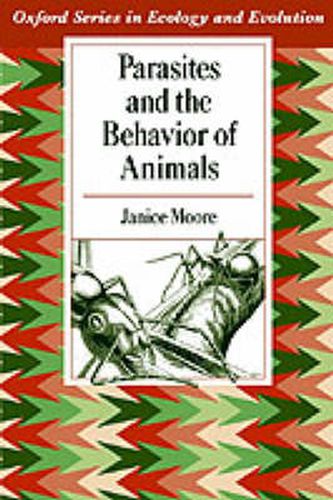Readings Newsletter
Become a Readings Member to make your shopping experience even easier.
Sign in or sign up for free!
You’re not far away from qualifying for FREE standard shipping within Australia
You’ve qualified for FREE standard shipping within Australia
The cart is loading…






When a parasite invades an ant, does the ant behave like other ants?
Maybe not-and if it doesn’t, who, if anyone, benefits from the altered behaviors? The parasite? The ant? Parasites and the Behavior of Animals shows that parasite-induced behavioral alterations are more common than we might realize, and it places these alterations in an evolutionary and ecological context. Emphasizing eukaryotic parasites, the book examines the adaptive nature of behavioral changes associated with parasitism, exploring the effects of these changes on parasite transmission, parasite avoidance, and the fitness of both host and parasite. The behavioral changes and their effects are not always straightforward. To the extent that virulence, for instance, is linked to parasite transmission, the evolutionary interests of parasite and host will diverge, and the current winner of the contest to maximize reproductive rates may not be clear, or, for that matter, inevitable. Nonetheless, by affecting susceptibility, host/parasite lifespan and fecundity, and transmission itself, host behavior influences parameters that are basic to our comprehension of how parasites invade host populations, and fundamentally, how parasites evolve.
Such an understanding is important for a wide range of scientists, from ecologists and parasitologists to evolutionary, conservation and behavioral biologists: The behavioral alterations that parasites induce can subtly and profoundly affect the distribution and abundance of animals.
$9.00 standard shipping within Australia
FREE standard shipping within Australia for orders over $100.00
Express & International shipping calculated at checkout
When a parasite invades an ant, does the ant behave like other ants?
Maybe not-and if it doesn’t, who, if anyone, benefits from the altered behaviors? The parasite? The ant? Parasites and the Behavior of Animals shows that parasite-induced behavioral alterations are more common than we might realize, and it places these alterations in an evolutionary and ecological context. Emphasizing eukaryotic parasites, the book examines the adaptive nature of behavioral changes associated with parasitism, exploring the effects of these changes on parasite transmission, parasite avoidance, and the fitness of both host and parasite. The behavioral changes and their effects are not always straightforward. To the extent that virulence, for instance, is linked to parasite transmission, the evolutionary interests of parasite and host will diverge, and the current winner of the contest to maximize reproductive rates may not be clear, or, for that matter, inevitable. Nonetheless, by affecting susceptibility, host/parasite lifespan and fecundity, and transmission itself, host behavior influences parameters that are basic to our comprehension of how parasites invade host populations, and fundamentally, how parasites evolve.
Such an understanding is important for a wide range of scientists, from ecologists and parasitologists to evolutionary, conservation and behavioral biologists: The behavioral alterations that parasites induce can subtly and profoundly affect the distribution and abundance of animals.